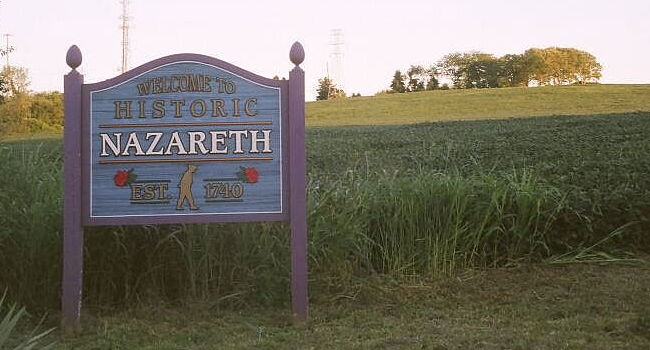The developer behind a long-awaited project in Lehigh Township asked township supervisors to consider providing tax relief to the project at their Feb. 27 meeting.
Joe Posh, the developer behind a long-anticipated Turkey Hill—and its associated roadway improvements—asked members of the Lehigh Township Board of Supervisors if they would be open to considering a tax increment financing proposal, also known as a TIF, that would help them finance the development of the project.
A TIF is a tax device that allows properties to be taxed at the parcel’s current rate for a designated period of time, according to Lehigh Township Solicitor David Backenstoe.
“TIFs are often used by developers when they want to develop a property which, let’s say, is challenged. Maybe it’s a brownfield, maybe it’s an extremely large piece of property which there are a number of different uses for—and the developer is going to have to put up a lot of cash, a lot of money—to develop the project,” Backenstoe said. “A TIF is a tax device which Pennsylvania legislature created many years ago, and in its simplest terms it does the following: it says that a property will continue to be taxed at its current rate for a period of time.”
Backenstoe said that TIFs offer both a break and an incentive to developers, as they allow developers to forego tax increases that usually take place when developers are making roadway improvements and other similar changes.
“Ordinarily, as you all know, when improvements like that are made to a property the taxes increase. What a TIF does is its says the increase in taxes won’t go to the township, county or the school district—rather the developer, for the period of time, can use those funds to pay off the indebtedness associated with the improvements of the project, whether it be roads, infrastructure, drainage, things like that,” Backenstoe said.
Backenstoe said that TIFs can be “enticing” to municipalities, as they allow development to take place. According to Backenstoe, developers can only get approval for a TIF if it is okayed by the municipality, the school district and the county.
Posh said that developers often resort to TIFs when all other options have been exhausted.
In September 2017, the attorney for Cherryville Development Partners, Jim Preston, said that the developers were experiencing cost overruns and cost allocation issues between all the parties involved in the project, according to minutes from the meeting.
“It’s usually, from a developer’s standpoint, a last resort kind of thing,” Posh said. “If a TIF is capable of bridging that last piece, that’s when we look at it, and especially when that last piece is usually off-site infrastructure kind of improvement.”
Posh said that utility relocations along Route 248 have been a thorn in the side of the developers behind the project, as the relocations would cost “several hundreds of thousands of dollars.”.
Supervisor Cindy Miller asked if pursuing a TIF would set a precedent for other developments in the township, but Backenstoe said TIFs are a case-by-case scenario, and said it would not set a precedent.
Supervisor Keith Hantz said that he was interested in learning more about a potential TIF for the project, and the rest of the board agreed.
“I would like more information… I think it’s something we need to entertain a little more,” Hantz said.
Posh said he would move forward with employing a TIF consultant to provide more information to the township.
In other business, the board approved to move forward with employing Watkins Architect to provide a budget, schematic floor plan and program outline for a proposed public works building in the township.
The next Lehigh Township Board of Supervisors meeting will be on March 13 at 7 p.m.








